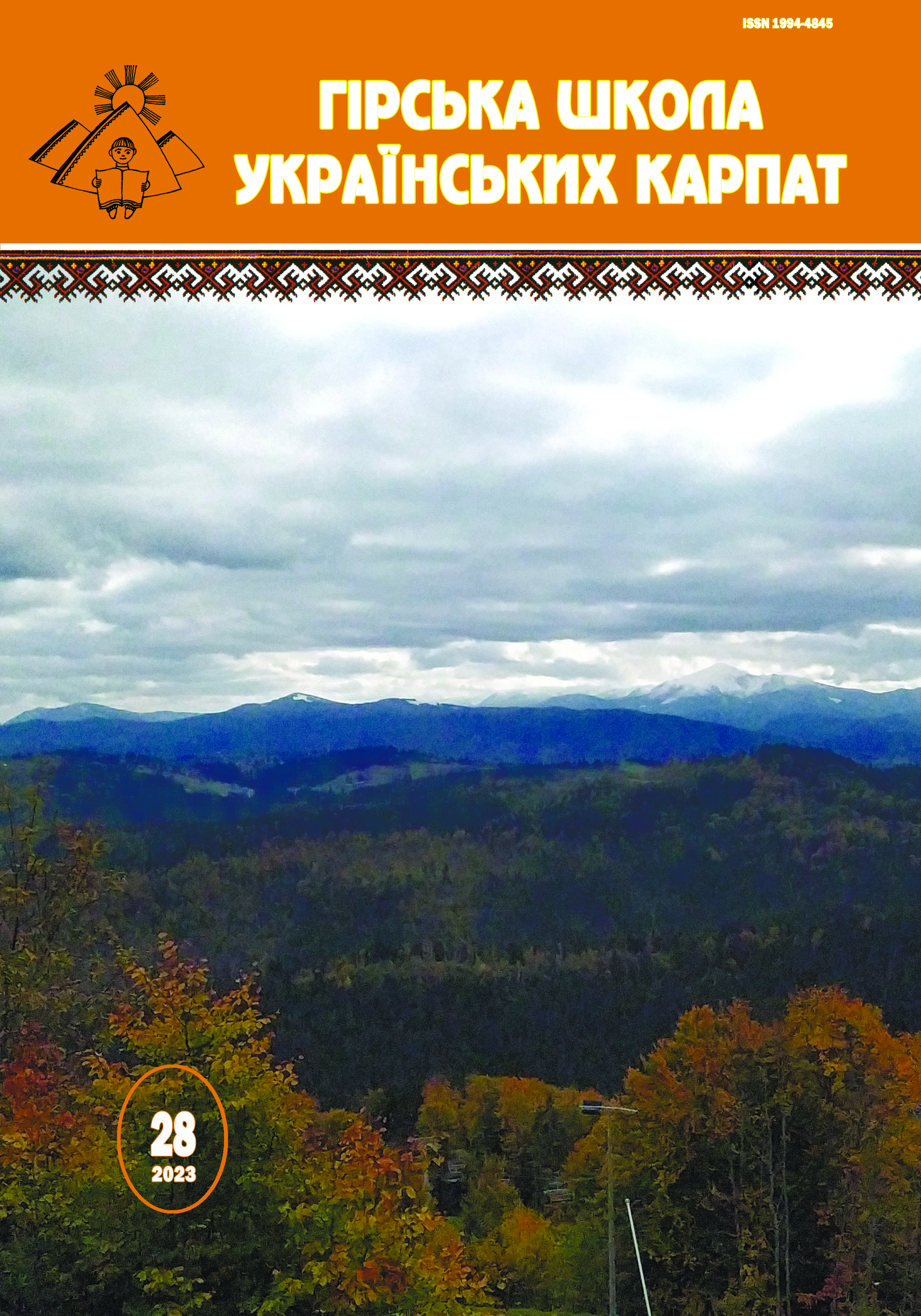DEVELOPMENT OF COGNITIVE ACTIVITY OF PUPILS OF YOUNGER CLASSES IN THE EDUCATIONAL PROCESS ACTIVITIES
DOI:
https://doi.org/10.15330/msuc.2023.28.104-108Keywords:
training, educational and cognitive activity, learning interest, interactive technologies, brainstorming, cognitive interestAbstract
The article is devoted to the problem of the development of the cognitive activity of a junior high school student, which is becoming more and more relevant, since changes in life in the modern world require changes in the purpose and purpose of modern education. The article reveals the peculiarities of increasing the cognitive activity of younger schoolchildren. Attention is focused on the need for the harmonious development of the personality of a junior high school student, the implementation of an educational influence on him in order to reveal his inner potential, the study of needs and requests, and the creation of a comfortable educational environment on this basis. Approaches to the development of cognitive activity of schoolchildren are highlighted, since cognitive activity is the basis of almost any activity of a schoolchild and the determining basis of the organization of the educational process at school. The essence of the concepts "cognitive interests", "cognitive activity", "interactive methods", "interactive learning", "critical thinking" is revealed, the relationship between mental operations, education and practical influence on the personality in the process of forming the need to be active is demonstrated. The prerequisites for increasing students' cognitive interests are highlighted, the main requirements for the organization of a favorable educational, educational and developmental environment of an educational institution are revealed. The main aspects of using interactive methods in practice are demonstrated. Emphasis is placed on the main requirements for the teacher's practical activity, the main interactive techniques and methods that should be used to stimulate students' cognitive activity are revealed. The impact of various interactive forms and methods of working with primary school students is characterized. Scientific approaches to the given problem were analyzed, directions, forms and methods of practical implementation were established. It is outlined that cognitive activity is a primary condition for the formation of students' need for knowledge, mastering the skills of intellectual activity, independence, ensuring the depth and strength of knowledge.


